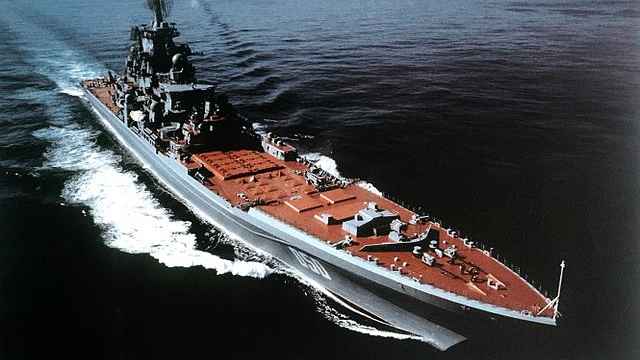In a move that brings the Russian navy one step closer to establishing a permanent presence in the Mediterranean Sea, Black Sea Fleet Commander Alexander Vitko announced on Thursday that he would take personal command of upcoming exercises with a Mediterranean naval task force designed to test the water for a future long-term deployment.
The Soviet Union's Fifth Naval Squadron maintained a permanent presence in the Mediterranean Sea for most of the Cold War. But as its economic and military power shrank in the 1990s following the fall of communism, Russia disbanded the unit, limiting itself to temporary tours in the area.
But the ambition remained. Recently, with the ongoing modernization of the Black Sea Fleet following Crimea's annexation from Ukraine in March, Russian naval planners have re-energized plans to re-establish the permanent force, which would allow Russia to secure shipping access to the Suez Canal and extend its influence in the Middle East.
During the upcoming exercises, Vikto and his staff will work on how a squadron could best achieve these aims, state news agency RIA Novosti reported Thursday.
Currently, the task force is made up of temporarily assigned ships borrowed from Russia's Northern, Baltic and Black Sea fleets.
Any permanent Russian Mediterranean Force would be based out of Sevastopol or Novorossiisk on the Black Sea, since Russia's small Tartus naval station in Syria is incapable of supporting an entire squadron of ships.
A Message from The Moscow Times:
Dear readers,
We are facing unprecedented challenges. Russia's Prosecutor General's Office has designated The Moscow Times as an "undesirable" organization, criminalizing our work and putting our staff at risk of prosecution. This follows our earlier unjust labeling as a "foreign agent."
These actions are direct attempts to silence independent journalism in Russia. The authorities claim our work "discredits the decisions of the Russian leadership." We see things differently: we strive to provide accurate, unbiased reporting on Russia.
We, the journalists of The Moscow Times, refuse to be silenced. But to continue our work, we need your help.
Your support, no matter how small, makes a world of difference. If you can, please support us monthly starting from just $2. It's quick to set up, and every contribution makes a significant impact.
By supporting The Moscow Times, you're defending open, independent journalism in the face of repression. Thank you for standing with us.
Remind me later.





